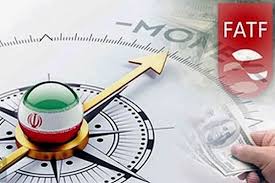While the Expediency Council is debating FATF related CFT (Combating the Financing of Terrorism) and Palermo Convention, the first news emerging are that the two bills have been approved by the Joint Commission, which was established with the participation of members from political, security, economic and judicial Commissions and was led by the Chairman Amoli Larijani himself.
That is what one member of the Expediency Council, Seyyed Mohammad Sadr, said as reported by Khabar on line (linked to Ali Larijani, the brother of the Chairman). The next step will be the approval of the Assembly.
Though there is a long way to go and the debate will be particularly difficult, the stakes are high and concerns the future of the macro economic condition of the Country and possibly its stability in the short medium term.
Analysts and experts agree that the approval of the bills, by formally completing the overall process requested by FATF and leading to the removal of Iran from its blacklist, could pave the way for increased financial transactions, trade and trasparency.
The debate at the Expediency Council started on january 27. Previously, the iranian Majlis approved the FATF measures on 2018 but disagreement between Majlis and the Guardians Council resulted in the issue being referred to the Expediency Council.
Sources in Teheran say that few months ago the iranian President Pezeshkian wrote a letter to the leadership (meaning Khamenei himself), asking the permission to review those pending bills at the Assembly and he got the green light, possibly with an eye on the possibility of the resumption of the nuclear talks with the US.
Iranian analysts highlight that at the moment only three Countries are out of FATF: other than Iran also North Korea and Myanmar. Joining the system could offer Iran the possibiliy of strenghtening Iran’s global trade.
Moreover, though opposition forces are strong and have their own arguments against joining, iranian businessmen and exporters fully support the process, by considering the potential economic opportunities possibly coming from a strengthened financial stability, also in the context of the strong devaluation of the rial in the recent weeks, after Trump reinstated the so called “maximum pressure” on Iran.
Of note, Ali Larijani, whose public profile has increased in recent months as “advisor” to Khamenei, has publicly endorsed joining FATF.
Being on the FATF black list has had a huge cost for Iran. Restricted banking access, reduced international trade opportunities and limitations from both IMF and World Bank.
Russia and China are not ready to fully engage in financial transactions with Iran because of FATF non compliance.Sometimes is difficult to understand to what extent the iranian economy is affected by the sanctions and/or by being in the FATF blacklist. To give an idea of the matter some researchers have compared Russia, which faces 10.044 sanctions, with Iran, with 1337 sanctions.
The opponents are adamant that joining FATF would compromise Iran way of circumventing US sanctions, particularly those related to the oil export. This argument is rejected by those who are in favor, who highlight the potential benefit from financial stability, also in terms of currency stability.
One iranian economist reported by Kiava News, Ali Ghanbari, believes joining FATF could cause 30 % of export revenues being lost to intermediaries. Other economists, like Hadi Khani, believe delaying joining could cause hostile nations to justify actions against Iran.
Meanwhile, as the debate goes on, foreign investment in Iran remains stagnant with just 2,1 billion $ secured over the past three years.
Of note, the Ministry of Intelligence and the security apparatus of the Islamic Republic are against joining FATF, which they consider as a US tool to “steal” financial data from Iran in order to pursue its policy of “regime change”.
.
